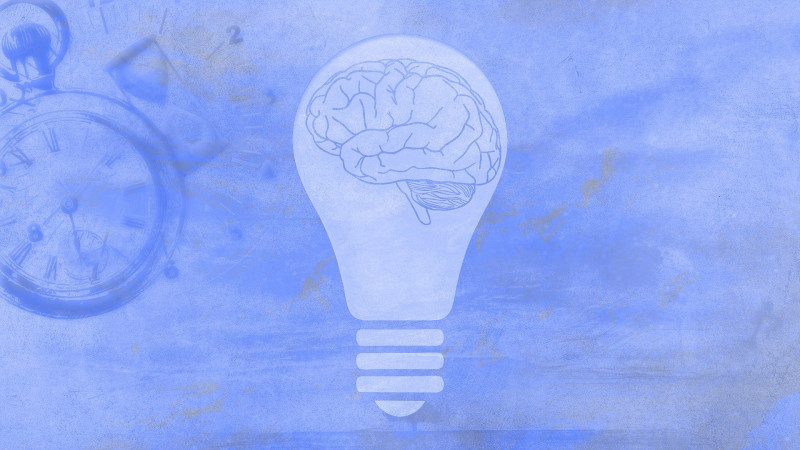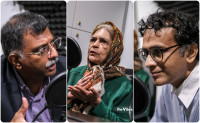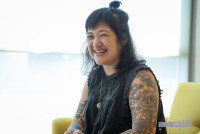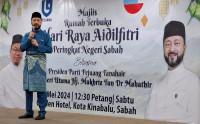IN honour of autism awareness month (or autism acceptance month, as preferred by the autistic community), we are observing more autistic advocates speaking about autism, educating the public on our perspectives and our lived experiences.
This shift of paradigm is also made possible due to several agencies being receptive and acknowledging the need for inclusion. How can we speak about autism without including autistic voices?
Imagine speaking about women’s rights and only male perspectives were taken into consideration – horrifying!
It is important to note that how autism is spoken about across social media influences the general public’s perception and understanding of autism.
Recent studies by Karaminis et al. (2022) and Jones et al. (2023) noted that media often present autistics as (i) only occurring in children, (ii) male, (iii) predominantly white, (iv) savant, and (v) in a stereotypically negative manner.
Indirectly, it provides a misconception about autism. And people tend to see autism as “something wrong with that individual” instead of emphasising on accommodation and societal attitude/acceptance towards autistic people.
This made it all the more important for autistics to re-educate the public akin to reversing a Windows or iOS update to input proper data.
As autistic self-advocacy sprouts, it can be dampened as well.
I was perplexed and horrified at the National Autism of Society of Malaysia's (Nasom) recent statements on autism, specifically the president’s live-broadcast statements in TV3’s Wanita Hari Ini and the chairman’s defense of the president’s statements.
As stated by the president:
“… Dan features pada budak autism ni eye contact tak de, hyperactive, yang mild tu ok la, yang tak mild tu tak boleh bercakap…”
It is important to note that there is no such thing as ‘mild’ autism. It is a loose term used by the public but as the longest-standing parent-lead autism organisation, it is best to adhere to best-evidence.
Since The Diagnostic and Statistical Manual of Mental Disorders, Fifth Edition (DSM-V) was introduced in 2013, autism was categorised into ‘Level 1 – requiring support’, ‘Level 2 – requiring substantial support’, and ‘Level 3 – requiring very substantial support’.
The term ‘high-functioning’ is loosely used by professionals for autistics who underwent the Wechsler Adult Intelligence Scale (WAIS) and scored within the norm or higher (Full Scale Intelligence Quotient of 85 and above).
However, it is important to note that the term ‘high-functioning autism’ is as good as non-existent in the DSM-V TR and ICD-11.
For autistics with level 1 – requiring support, we are the reverse from the parental point of view (since the context is only about skills).
In the study of Hirvikoski and colleagues (2019) with a sample size of 43,570, autistics are eight times more likely to suffer from depression disorders, nine times more likely to suffer from anxiety disorders and 30 times more likely to suffer from schizophrenia.
It is also disheartening to disclose that autistics are five times more likely to attempt suicide, and eight times more likely to complete suicide.
The suicide rate for autistic women triumphs over autistic men, highlighting the downfall in healthcare services as we attend to autistic women.
So dear president of Nasom, enlighten me, which part of being autistic with level 1 support is OK?
“… Parents dia lecturer, bapak dia engineer, tapi kita pi rumah dia kosong. Sebab anak autism yang ada di situ akan terlalu hyper dan jadi kelam kabut. Anak saya sekarang hobi dia dah jadi lain pula, mencabutkan tali kasut, habis tali kasut dicabut dan disimpan, dan apabila nak keluar pakai kasut tak de tali kasut”
It is indeed true that dual diagnosis of ASD and attention deficit hyperactivity disorder (ADHD) may occur and a study reported that up to 70% of autistics were concurrently diagnosed with ADHD.
However, Hours and colleagues (2022) noted that misdiagnosis may occur due to a misunderstanding of autistic traits as ADHD traits.
It is important for the public to know the difference between sensory arousal and hyperactivity.
When an autistic child is experiencing overstimulation in his sensory system, he would be engaged in sensory-seeking behaviours and appeared to be ‘disobedient, naughty, and not following instructions’.
But we need to look beyond the behaviour, what is the child trying to communicate with you? All behaviour is communication.
The way the sharing is being presented by the Nasom president is not helpful in cultivating understanding autism. The impression of the public is instead ‘Oh, this autistic child would be hard to handle.’
Would this personal sharing lead to acceptance or further stigmatisation of autistic behaviours? I leave it to the public to judge.
(Note: If you are uncertain whether your child is having hyperactivity disorder (HD) or sensory-seeking, seek an allied health professional, be it a clinical psychologist or an occupational therapist)
In regards to the chairman’s defense of the president:
“The sharing from a board member at a recent TV programme was about his personal experience and the challenges of other families raising an autistic child in an era where autism awareness is not yet widespread.
"We believe the statement has no intention to offend any individual or group. During the short interview, we felt that he did not have the opportunity to talk about how the modern world has changed the view of people about autism.
"As a father of a young adult autistic and a board member and individual who has been fighting for the rights of autism for a long time, he is aware of the changes and is quite sensitive to the false notion or myth about autism.”
It is imperative to mention that autistic advocates have no issues with parents sharing their experiences. In fact, it gave us new perspectives as we grow up. However, it is important to mention that such sharing should be helpful instead of chiding, which is clear throughout his statements.
Considering that the chairman would defend the president’s statement with lacking time to explain himself, at the same time alleging autistic advocate Beatrice Leong to be defamatory is contradictory.
Although this is not a criminal case, let me remind the chairman of the principle of ‘prima facie’. We are commenting on what the president said on a live TV broadcast, NOT on what he did not say.
How can you persecute someone for speaking out her opinion based on the truth laid out there? I would like to invite the chairman to re-listen to his president’s statements again.
And these statements could be harmful to the public’s perception of autism. We need to stop reinforcing negative stereotypical information about autism and stop infantilising autistics.
We could definitely go on and on about the president’s and the chairman’s statements and more journal articles that could be cited in the spirit of ‘best-evidence’ and evidence-based practices. However, that is not the point of this article.
The point here is that the negative stereotypical presentation of autism must stop. Stop talking about finding the ‘savant’ or ‘the hidden talent’ within an autistic. Stop complaining about our fixated interest when it is our passion for the subject.
Every autistic is nothing less or nothing more; we are human, so start treating us like humans. Listen to us as we speak – do not infantilise, pity, or put us down.
The public perception of autism must change. Would you look down on someone due to their height in society? If not, why would you do so toward autistic people? – The Vibes, April 19, 2023
Bao Zhong is an autistic diagnosed at the age of 27. He is also a licensed and registered counsellor (KB, PA) and serving under the Ministry of Health, Malaysia




















